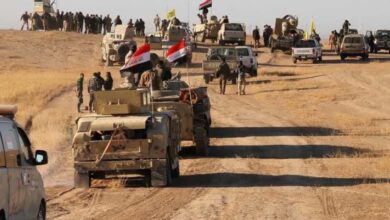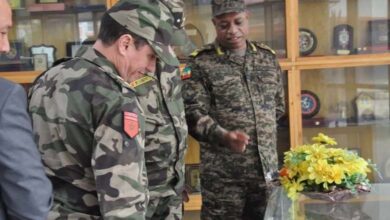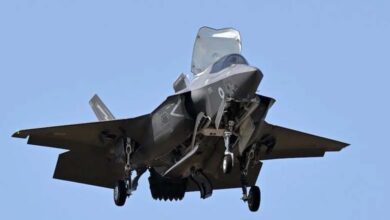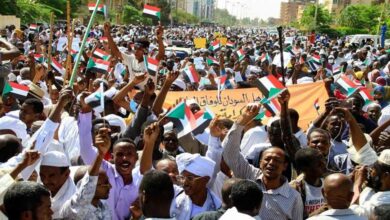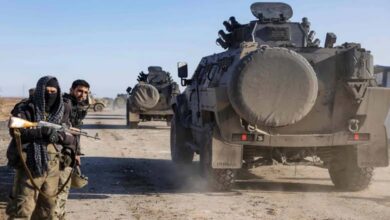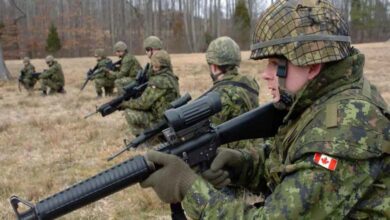Syrian Kurds Plan to Empty Jihadist Camps by the End of the Year
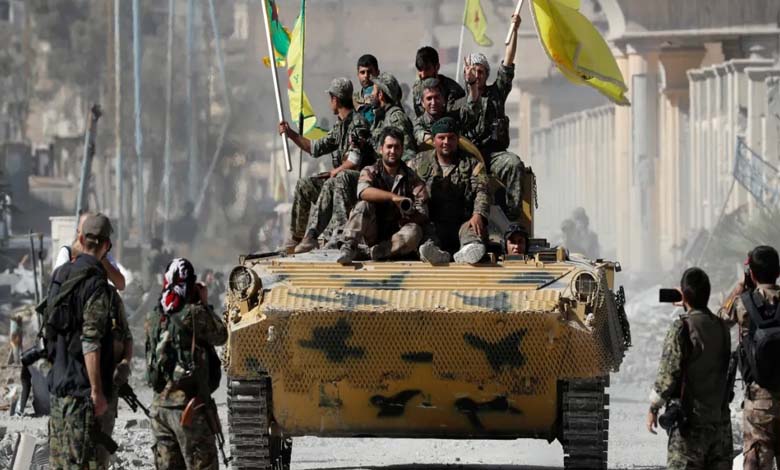
A senior official in the Kurdish Autonomous Administration has denied that Washington’s freeze on foreign aid is the reason behind allowing Syrians and Iraqis to return to their home regions.
The Kurdish Autonomous Administration is working to empty the camps it oversees in northeastern Syria, which house thousands of displaced Syrians and Iraqis, including families of Islamic State (ISIS) fighters, according to an official.
-
Turkey bombs Syrian Democratic Forces areas north of Syria’s Racca
-
The Syrian Democratic Forces Imposes Curfew in Deir ez-Zor as Battles Escalate with Tribes
Sheikhmos Ahmed, co-chair of the Office for Displaced Persons and Refugee Affairs, stated late Monday that the administration aims to close the camps by 2025, in coordination with the United Nations, adding that a meeting on this matter is scheduled in the coming days.
Since the beginning of the year and following the fall of Bashar al-Assad‘s regime, the Kurdish administration has facilitated the departure of Syrians and Iraqis wishing to leave Al-Hol camp—the largest camp it manages in northeastern Syria—as well as other camps.
-
Syria Monitor: 101 dead in clashes between pro-Turkish, Kurdish forces
-
Security Chaos Returns to Syrian Regions… Hayat Tahrir al-Cham Members Top the List of Accused
The Al-Hol camp houses over 40,000 people from dozens of nationalities, who live under dire humanitarian conditions. As of 2024, it sheltered more than 20,000 Iraqis and 16,000 Syrians.
According to an Iraqi security official, 12,000 Iraqis have left the camp since 2021, while 17,000 remain there.
The camp administration releases Iraqi families in waves and is currently developing a mechanism to facilitate the return of Syrians, said Ahmed, who also mentioned that displaced Syrians are being allowed to leave Al-Arisha and Mahmoudli camps.
-
“The Passage is closed”: Syria Announces Interception of Weapons Bound for Hezbollah
-
Has Maher al-Assad Returned to Syria? Controversy and Official Response
The Kurdish administration coordinates its efforts with the United Nations High Commissioner for Refugees (UNHCR) and several organizations operating in the region, including Blumont, a U.S.-based NGO responsible for managing Al-Hol and Roj camps.
Ahmed denied that Washington’s aid freeze was the reason behind these returns, clarifying that both international and local organizations remain active in providing humanitarian support, while the Kurdish administration continues to provide services to the camps.
-
How ISIS Fighters in Northern Syria Could Benefit from Turkey’s Ambitions
-
ISIS Awakens in Syria: The Organization Awaits the Perfect Moment to Return to the Global Stage
On Friday, Human Rights Watch (HRW) warned that the suspension of U.S. aid was exacerbating “life-threatening conditions” in the Al-Hol and Roj camps, where thousands of families of foreign ISIS fighters are detained.
Since ISIS was officially defeated in 2019, the Kurdish administration has been calling on concerned countries to repatriate their citizens. Despite multiple appeals and warnings from international organizations about the “catastrophic” conditions in these camps, most countries refuse to take back their nationals.
-
US Plans to Adjust Humanitarian Aid Policies for Syria Without Lifting Sanctions, Sources Reveal
-
Syria Monitor: 101 dead in clashes between pro-Turkish, Kurdish forces
Hiba Zayadin, a researcher at Human Rights Watch, stressed that “those unlawfully detained in Al-Hol and Roj camps should not be left in limbo indefinitely,” urging that their dire situation be included in discussions about Syria’s future.
The Syrian Democratic Forces (SDF), the military arm of the Kurdish administration that controls large territories in northeastern Syria, are negotiating with the transitional authorities in Damascus, who have announced the dissolution of all armed factions and reiterated their rejection of any federal division of the country, even as Kurds have maintained an autonomous administration in their regions for years.


